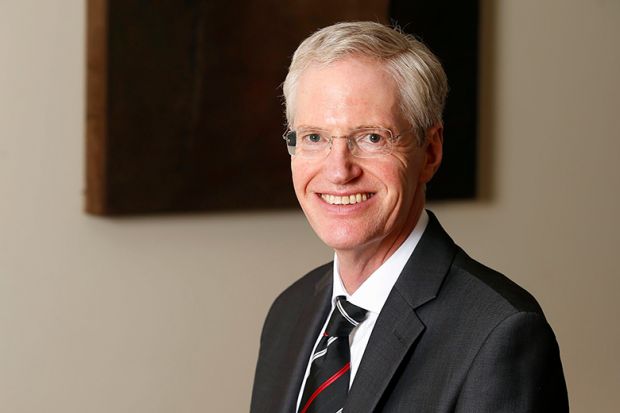The Open University has appointed Tim Blackman, the current vice-chancellor of Middlesex University, as its next leader.
Professor Blackman will join the OU in October, succeeding Peter Horrocks, who stepped down last year, and Mary Kellett, who has been acting vice-chancellor since then.
Before joining Middlesex, Professor Blackman served as pro vice-chancellor for research and quality at the Milton Keynes-based OU, as well as acting vice-chancellor.
He faces the formidable task of turning around the UK’s leading distance-learning institution, which is forecasting a £30 million deficit for this year, hot on the heels of a £17.9 million shortfall in 2017-18.
Mr Horrocks was forced to resign in April 2018 after weeks of mounting pressure over cuts to jobs and courses as part of a restructuring project that aimed to save £100 million from the institution’s £420 million annual budget, and leaked comments about academics’ teaching duties.
Planned cuts have since been scaled back, but the OU is still in search of a financial model that is sustainable under England’s post-2012 student finance regime, which led to a huge cut in the university’s block grant and a significant increase in tuition fees, with mature learners proving unwilling to take on big debts. Student numbers fell by a third between 2009-10 and 2017-18, from 260,119 to 174,898.
Professor Blackman hailed the OU as “one of the UK’s best inventions”, and said it was a “tremendous honour and privilege” to return to the institution.
“I look forward to working with the whole OU community to advance the university’s mission and purpose, which are just as pioneering and relevant today as they were 50 years ago,” he said.
The OU said that Professor Blackman, who has also held senior roles at Durham, Oxford Brookes and Teesside universities, would earn £270,000 a year, with an annual supplement of about £37,000 in lieu of pension contributions.
This is broadly comparable to his remuneration at Middlesex but a reduction on Mr Horrocks’ salary of £321,000. Mr Horrocks received £242,000 in severance pay, which, once benefits were included, took his overall remuneration for his final year in office to £629,200.
Register to continue
Why register?
- Registration is free and only takes a moment
- Once registered, you can read 3 articles a month
- Sign up for our newsletter
Subscribe
Or subscribe for unlimited access to:
- Unlimited access to news, views, insights & reviews
- Digital editions
- Digital access to THE’s university and college rankings analysis
Already registered or a current subscriber?








